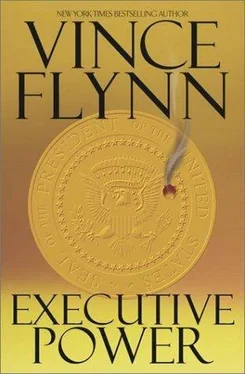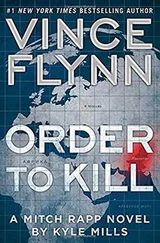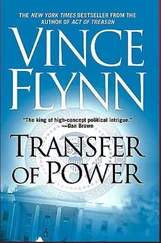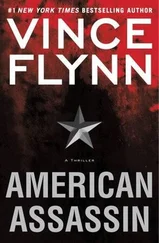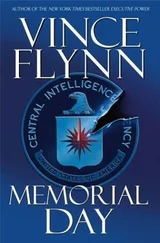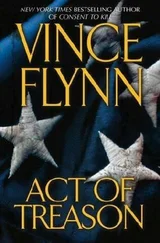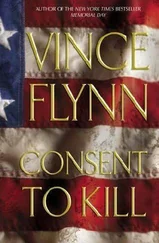"And what will you be discussing with General Moro?"
Rapp stopped with his shoulders squared to the President and looked down at his shoes for a moment.
"Sir, does the first lady ever accuse you of having selective memory?"
"Ever since the day I met her, and truth be told she's right. But that's not the point." The President spun his chair a quarter turn and looked out the window.
"Mitch, I'm not comfortable having you stick your neck out this far."
"Don't worry about me, sir. That's what I'm paid for."
The President nodded.
"Yeah, I know you are, but that doesn't give the rest of us the excuse to say we were kept in the dark every time something goes wrong."
"Sir," said Kennedy with great sincerity, "that's the way it has to be."
"Well, that doesn't mean I have to like it, and to be honest, I'm not so sure eliminating General Moro will do anything other than satiate our short-term need for blood."
Rapp frowned at the President's words. In his tactical mind blood lust had no bearing on whether Moro deserved to die or live.
"Mr. President," Rapp said in a voice that was neither pleading nor condescending, "General Moro is a traitorous bastard who is directly responsible for the death of two United States Navy SEALs. And if you're worried about offending President Quirino, I can assure you that after she finds out Moro was a paid informant for both the Chinese and Abu Sayyaf, she'll be thanking us for getting rid of him."
The President tapped his finger on his lips a few more times and then leaning forward and grabbing a file announced, "Let me think about all this, and I'll get back to you."
Rapp didn't have to be a seasoned Washington bureaucrat to recognize a brush-off. Not one to give in so easily, he stood his ground and asked, "When will you have an answer for me, sir?"
Hayes eyed Rapp cautiously for a second and said, "In a couple of days."
Rapp shook his head.
"That won't work, sir. Once the story breaks on the Ambassador and Petry, our ability to move on Moro will be compromised."
Hayes again leaned back in his chair and exhaled.
"Listen," he said in a no-nonsense tone, "from what you've told me this morning, this General Moro deserves to rot in a cell for the rest of his life, but as far as assassinating him goes… I'm not so sure. The fallout could be very ugly and to be honest with you, we really need the Philippine government with us in this fight. So as I said, I'm going to need a few days to consider our options." Having spoken his piece, Hayes spun his chair away from Rapp and opened the file he'd grabbed off his desk.
Rapp watched him with curiosity, and then looked down at Kennedy for guidance. She stood and motioned toward the door with a jerk of her thumb. She looked at General Flood and did the same thing. Reluctantly, Rapp followed her orders and began to leave the famed office wondering how many other people over the years had felt his same sense of frustration. As he placed his hand on the doorknob, he heard Kennedy say to the President, "Sir, I need to have a word alone with you."
Rapp grinned ever so slightly as he looked back at his boss.
Kennedy, despite her subdued demeanor, could be surprisingly persuasive.
He felt confident that by the time she left the office they would have the approval they were looking for.
David's demeanor was calm though perhaps slightly distracted as he walked down Via Dolorosa, passing from the Muslim Quarter of the Old City to the Christian Quarter. It was a walk he'd taken countless times. In his youth he did so without a care in the world, but as he grew older he began to see things, to notice the dangers that lurked in the entry ways of the storefronts, in the eyes of the old men selling fruit and nuts on the street and the women running errands. There were spies and informants everywhere. It was in the thirteenth year of his life that innocence had been beaten from his body. He still carried scars from that day, both physical and mental, but he never spoke of them.
The eyes of the street spies no longer intimidated David as they had in the years after the beating. He was above reproach by such people.
If he chose he could have any one of them killed with a single order, but that was not who Jabril Khatabi was. His parents had raised someone infinitely more judicious. He used his power with great care, discretion and patience. Now more than ever he needed those three traits.
More than twenty years past, he had been walking down this same street in Jerusalem when he had been snatched in broad daylight and thrown into the trunk of a car. His own people thought he had been collaborating with the Jews. Back then they had been wrong. David had been nothing more than an innocent boy, walking through the Old City on his way to meet his mother at the hospital. Today all was different. If the PLO or Hamas, or Hezbollah or any one of a dozen groups had any idea what he was up to they would torture him until he begged to die.
Casually, he took a right onto Bab El Jadid and eyed the checkpoint up ahead. The Old City was surrounded by a fortress like wall constructed by Suleiman the Magnificent in A.D. 1540. Through this wall there were just seven gates. It was through these gates, over the centuries, that the conquerors had controlled who and what came and went from the city.
In the last century alone the city had been guarded by four countries; the Turks, the Brits, the Jordanians and now the Israelis manned the ramparts. Soldiers from the Israeli Defense Forces, dressed in green uniforms and bulbous helmets, checked the IDs of everyone trying to enter and leave the city. David remained calm as he continued toward the gate and his meeting just beyond.
There were many informants lurking about on this stretch of his journey. The Arab eyes were always watchful, reporting everything they saw or suspected to the Palestine Liberation Organization. The distrustful eyes of his brethren haunted him, reminding him of the need for his mission to succeed. The Palestinian people needed to bury their hatred if they ever truly wanted peace for their children, but in history's most oxymoronic way they would first have to wage war.
At this appointed hour, however, David suspected that there were also at least an equal number of Jewish eyes about. They wouldn't know who he was or the importance of the errand that he was on, though, for he was far too valuable to be trusted with any but Mossad's best and bravest.
Mossad, Israel 's vaunted intelligence service, did not suffer the counterintelligence woes of other countries due to the simple fact that their agents were fiercely loyal to both country and cause. They were, however, not entirely out of harm's way. Agents had been kidnapped by Israel 's various enemies and made to reveal valuable secrets. That was more than reason enough for David's contact to hold very close to his vest the identity of his most prized asset.
As David approached the New Gate, which had been cut into the wall of the Old City in 1887, he readied his papers. He presented them to a young Israeli soldier and was allowed to pass. He quickly crossed the street and after once again presenting his papers he was admitted onto foreign soil.
Notre Dame de France was owned by the Catholic Church and housed among many things the papal delegation to Christendom's holiest city. David's excuse for visiting such a place was less awkward than it might seem. He had explained many times to his Palestinian brethren that the delegation also held a branch office of the Vatican Bank. And no one, not even the Swiss, were as discreet when it came to banking matters as the Vatican. The leadership of the PLO did not question David in this regard. As long as he kept raising capital and funding their operations, they had little interest in the intricacies of international finance.
Читать дальше
